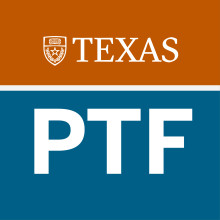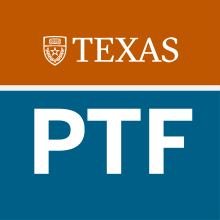Individual Fellow Initiatives

Does Increasing Course Depth While Reducing Breadth Improve Learning in College Students?
Student-centered learning strategies have been effectively used to increase academic performance and learning in students. Educators have hypothesized that course content reduction can also improve student learning. However, support for this idea is lacking. In the present project, I am planning to assess whether a content reduction strategy increases the academic performance of upper-division stem students at the University of Texas-Austin.

QR Learning for addressing social and racial injustice
The current proposal envisions developing alternative pedagogical materials for the “Measuring Racial Inequality” course, written in plain language and accessible to students from social sciences/humanities and underserved communities and families.

Offering Real-World Opportunities for Students Enrolled in Statistics and Data Science Undergraduate Research
The primary goal of this community-based service project is to provide experiential learning opportunities for undergraduates interested in statistics and data sciences while supporting the broader Austin-area community. Coordinating with local organizations, students enrolled in some of our SDS courses are gaining hands-on experience in data analysis while exploring authentic contexts. This innovative and collaborative effort provides a community-based model that allows students and local organizations to co-develop and answer real-world research questions.

Inclusive STEM Communication for Engineering Students
The challenges facing modern engineers are more complex than ever. Current engineering issues such as
algorithmic bias, data security and privacy, and sustainability do not only require technically skilled engineers,
but also engineers who are conscious about structural inequities and biases.

Gone (Back) To Texas: A Model For Alumni-led Experiential Learning
As the campus community enters a new post-pandemic era, it is clear that one of the most urgent needs following 2+ years of remote and hybrid learning is to create poignant, relevant contexts for pursuing immersive experiential learning. As universities reckon with the challenge of continuing to evolve their value propositions to meet student demand for more industry-relevant experiences, there is an opportunity to innovate how we design and deliver unique pedagogical experiences that connect more deeply with their educational and professional journey.

The “Social/Wellness Module:” Providing Space for Wellbeing and Social Learning for Incoming UT Students
My project addresses the lack of built-in social/wellness-oriented interactions in introductory courses for

Peer Mentor Leadership Project
The Peer Mentor Leadership Project (PMLP) empowers undergraduate students to explore and develop their leadership styles. Participants design and implement mentoring and leadership projects that align with their goals and values, while assessing the impact of their work. The program emphasizes introspection, reflection, and professional growth, helping students strengthen their resumes and leadership skills.

Digital Research Apprenticeship: Projects For Intersectional Justice
Research and scholarship in Digital Humanities applies technology to humanities questions and subjects technology

Pharmacy Practice Lab Redesign
The College of Pharmacy is embarking on one of the biggest curricular revisions in the past decade by creating a Pharmacy Practice Lab sequence spanning all six semesters of our didactic program. The course series will combine content from seven existing courses in order to decrease redundancy and duplication to create increased alignment and reinforcement. Rather than students learning content within “the silo” of a single course, students will be required to retain and apply their knowledge and skills throughout the entire curriculum.

Race, Democracy, and Global Social Justice: How Studying Inequality and Vulnerability can Transform the World
My initiative will achieve better learning outcomes in undergraduate and graduate students in History and the LBJ School by examining the intersection of history and contemporary policy, specifically its disparate impact on communities of color. Currently, departments, centers, faculty and students work independently of one another and lack valuable opportunities to collaborate. Genuine collaboration has evolved into a rare and difficult concept.

Difficult Dialogues Faculty Learning Community
(Project completed 2021) Since its inception at UT in 2006, the Difficult Dialogues (DD) program has worked with over 40 faculty in 8 colleges or schools to develop Difficult Dialogue signature courses, i.e., introductory UGS courses that promote respectful and productive dialogue about difficult and controversial social issues, including race and ethnicity, gender and sexuality, religion, human rights, immigration, evolution, climate change and sustainability, and illness and mortality.

Building Information Modeling (BIM) as a Proxy for Project-Based Learning Integration across the Architectural Engineering Undergraduate Curriculum
The University of Texas at Austin’s Civil, Architectural and Environmental Engineering (CAEE) department has taken several steps towards improving the preparation of Architectural Engineering students with respect to modern engineering tools, including the computing tools commonly used in engineering practice.

Data Analysis Tools: Integrating Computational and Statistical Techniques in the Environmental Engineering Curriculum
The goal of this project is to train the next generation of environmental engineers in computing and statistical techniques to solve big data problems. Current undergraduate students in the Department of Civil, Architectural and Environmental Engineering have little to no exposure to computational and statistical methods for data analysis (e.g., big data collected from sensor networks). I proposed to integrate computational techniques in several courses throughout the Environmental Engineering Degree.

Medieval Digital Research Lab: A Pilot Upper-Division Course
The idea for this pilot course grows directly out of departmental and university goals to increase opportunities for Experiential Learning and for new technology exposure in the Humanities; and to involve more undergraduate students in original faculty research.

Addressing Population Health through Interprofessional Community Engagement
Pharmacists are an integral member of the health care team, trained to provide care based on evidence. However, the nationwide call-to-action to transform the delivery of care requires a cultural shift in educating students in health professions programs. The rapidly evolving health ecosystem mandates practitioners to work collaboratively in teams to provide person-centered and population oriented care.

Strategic Course Redesign Focused on Professional Skills
The goal of this project is to shift the focus of a set of introductory courses, that are heavy in disciplinary content, in order to make space for greater emphasis on professional skills, such as information literacy, quantitative reasoning, communication, and others. The main challenge in accomplishing the goal is that the particular courses involved have high-enrollment—2300 undergraduates enroll in each course each year and they are taught by a team of 13 faculty. Because many faculty teach the courses, it is difficult to standardize the curriculum and the expectations across sections.

Freshman Opportunities for Research in the Geosciences (FORGe)
I am working on a unique partnership between Austin Community College (ACC) and UT Austin to develop collaborative peer learning communities (PLCs) in the Geosciences with mixed cohorts of two-year college (2YC) and four-year college (4YC) students.

Curriculum Integration Through a 4-year Design Project and Cross-course Educational Tools
In many curricula students find it difficult to understand the common thread and themes between their courses until near graduation (or ever). Thus, students are unable to benefit from the synergistic nature of a fully integrated program. Courses are taught by different instructors with different teaching styles and nomenclature (a potentially good thing), but all too often even the instructors are unaware of the material or educational objectives taught in complementary courses.

Measuring the Effectiveness of Active Learning Methods in Cell Biology
Despite ample evidence that implementing active learning methods in the classroom leads to better outcomes, most courses in Biology continue the use of traditional lecturing. Anecdotal conversations with many of my colleagues who teach upper division biology courses indicate a widespread perception that the traditional lecture is the most effective way to transmit information to students.

The Keys to Understanding History: Unlocking Digital Timelines
This project started out with a simple idea: From my original proposal, we noted that “Current historical timelines are not interactive, nor do they enable students to understand connections between different events. They are good at showing chronology, but are not good at illustrating how specific events are influenced by a whole host of different historical factors.”

CREEES Fusion Room: an Interdisciplinary Digital Workshop
This project entailed the creation of a curricular context and physical space for collaborative interdisciplinary teaching and research for faculty and students interested in Russian, East European and Eurasian studies. This was achieved in two ways. First, I transformed the required gateway course to our major, “Introduction to Russian, East European and Eurasian Studies,” which had been a disjointed “parade of faculty” course with disconnected guest speakers.

